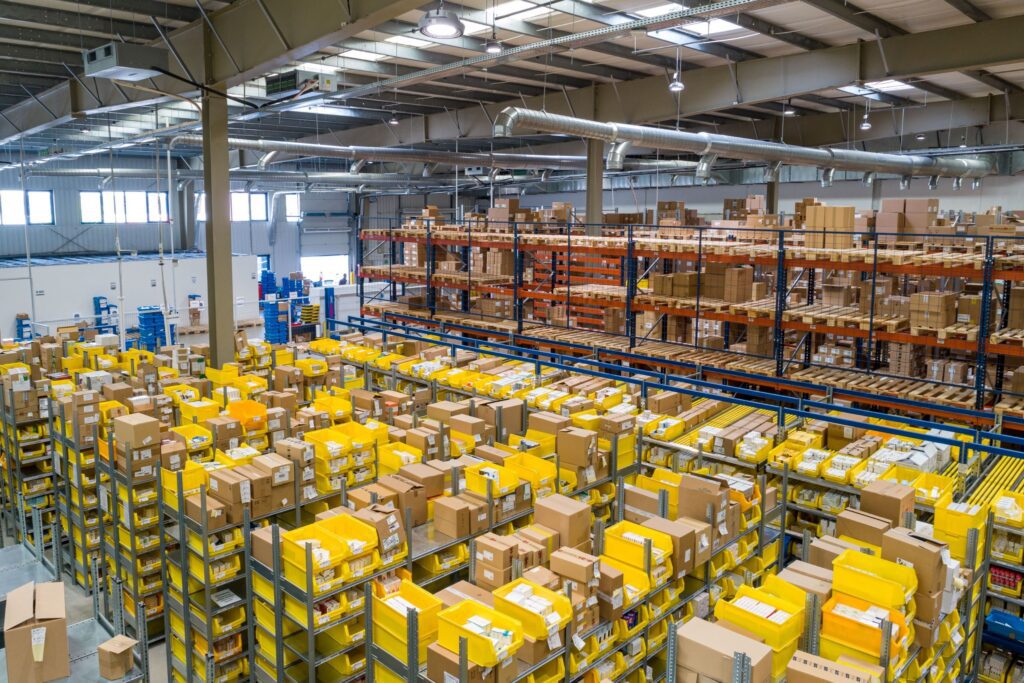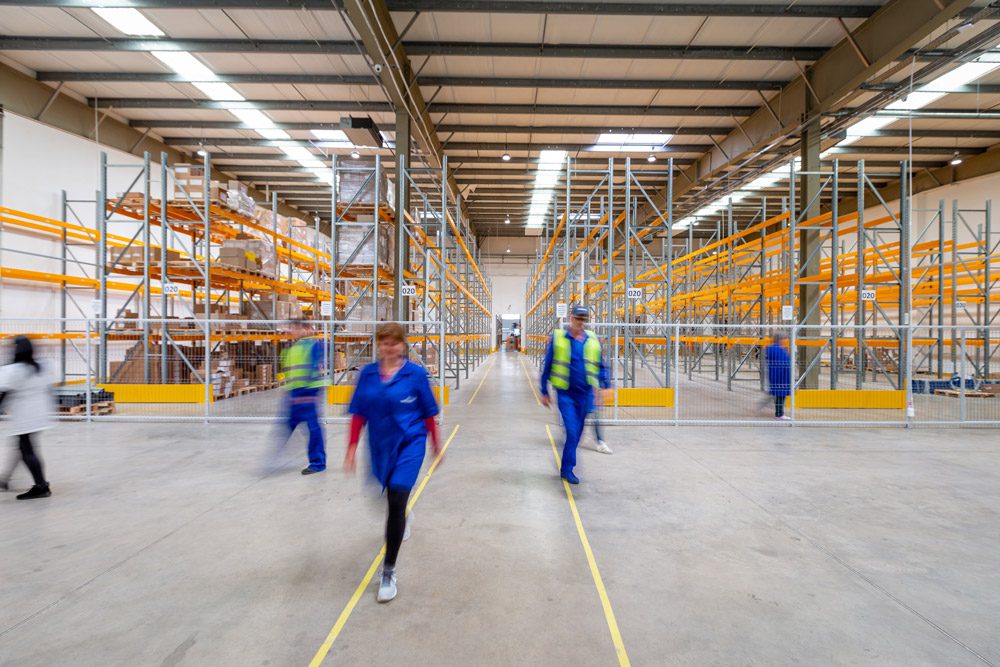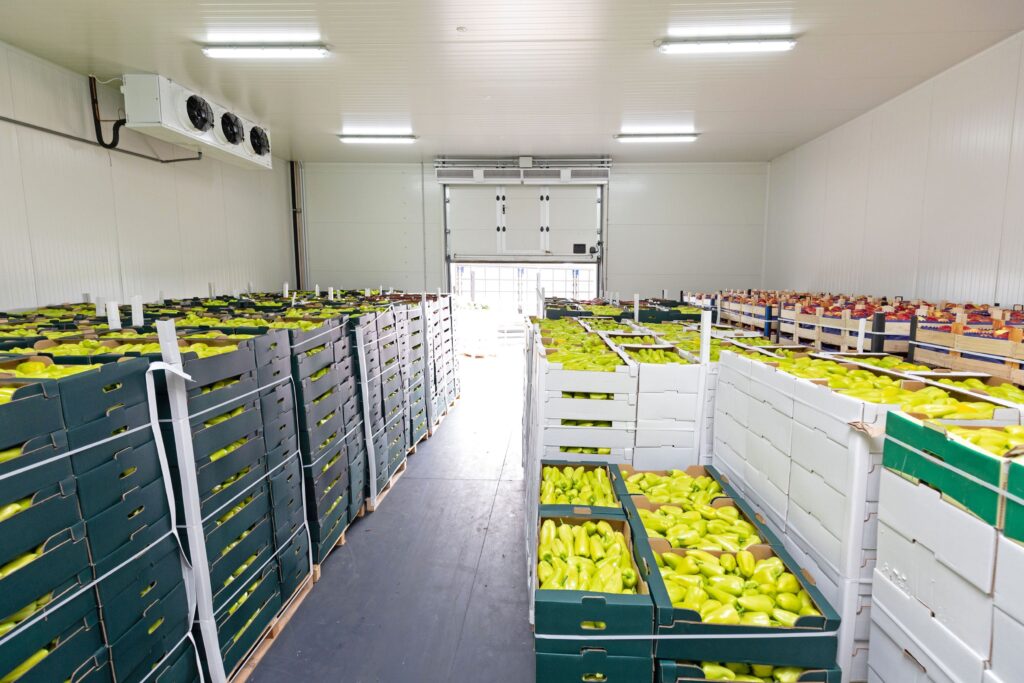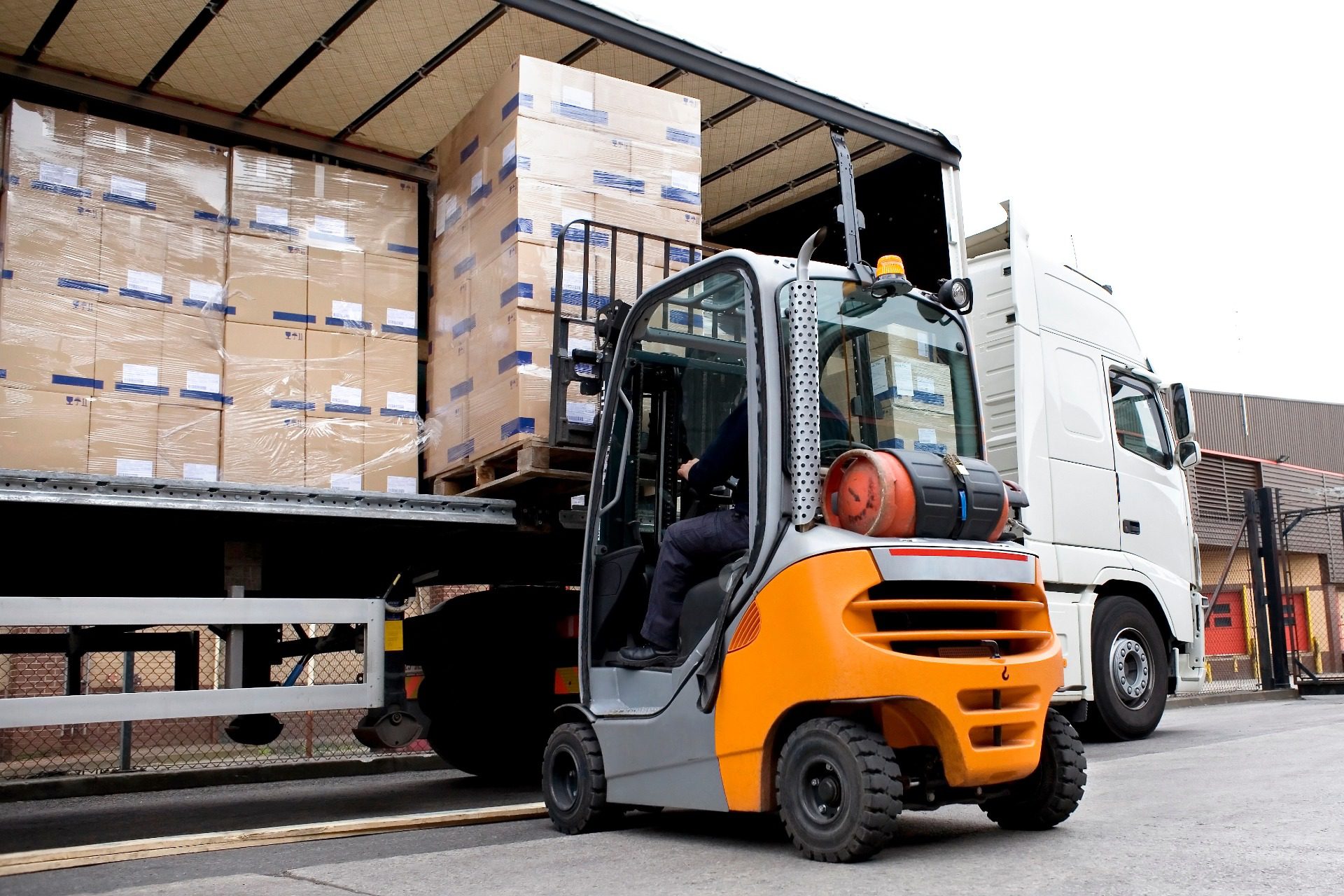As online commerce becomes more and more mainstream, the question of where inventory is kept is one that merchants need to consider. The convenience of online shopping is attractive, but where are these products and goods kept before the order is placed? When analyzing a business’ product fulfillment and shipping logistics, the topic of warehousing is bound to come up. While some might imagine a warehouse as a dreary large facility with boxes upon boxes of stored goods, in actuality, the picture is quite different. Modern warehouses are organized, clean, and lively hot spots for inventory management and product fulfillment. Without proper warehouse management, a business can suffer dramatically.
In this article, we’ll explore different types of warehouses, some of the options available for those exploring these warehouse types, as well as what property features entrepreneurs should look out for when selecting a private or public warehouse.
Different Types of Warehouses
In its simplest definition, a warehouse is a large building where goods and materials are temporarily stored before being sold or exported. A large variety of companies and businesses might need access to warehouses, especially larger companies that have grown enough to need more accommodating space for their products. When a company identifies a need for a warehouse or even multiple warehouses, they are forced to explore the different types of warehouses to choose the best one for their specific goods or products.
Let’s explore 10 of the most common types of warehouses, from cold storage facilities to private warehouses. Each warehouse type will be utilized for a different type of business, so choosing the best warehouse for your business needs is an important step in ensuring product and inventory fulfillment goes according to plan.
1. Public Warehouse
A public warehouse is a warehouse owned by governmental entities that are available to private sector companies. These types of warehouses can be rented out for business or personal use. Public warehouses are an especially attractive option for business owners that might need to only store inventory for a short amount of time as other warehouse options might be more expensive. Public warehouses are commonly used by new or growing businesses, such as e-commerce companies and startups, due to their affordability versus a private warehouse. Note, public warehouses tend to be fairly bare-bones in terms of their setting, they won’t have the technological capabilities of other warehouse types.
- Accessible to the public
- An affordable option for new businesses
- Great for seasonal businesses
- Ideal for short-term storage

2. Private Warehouse
Another popular warehouse option is a private warehouse, oftentimes referred to as proprietary warehousing. While a public warehouse is owned by a government body or a third-party, private warehouses are owned by a company division. If a business is interested in a private warehouse they will need to make a large upfront investment to secure the building, facilities management, and general maintenance and upkeep. Private warehouses are a popular option for wholesalers, distributors, and manufacturers. While a private warehouse is a more expensive option than a public warehouse, they offer business owners more overall control of their inventory management.
- Increased control over building facilities
- Great for companies that need a significant long-term presence in a specific region
- Provide a more exclusive location for business operations
3. Smart Warehouse
An increasingly popular warehouse option is a smart warehouse, which is a warehouse where the storage and fulfillment processes are automated with AI, such as robots and drones. The AI is responsible for packing, weighing, transporting, and storing raw materials, with many incoming orders being automated to be fulfilled immediately. Smart warehouses have been a go-to option for large e-commerce companies such as Amazon that seek to make their order fulfillment and inventory management a more accurate and expedited process.
- Inventory management is more accurate
- Automated functions decrease human error and save on labor
- Increase safety and security within the facility
- Provide insight into overall business efficiency
4. Cooperative Warehouse
A cooperative warehouse is a warehouse owned by multiple organizations or businesses. These companies tend to work closely together and access to the cooperative warehouse can save money for both companies. Cooperative warehouses are especially common among farmers or wineries, as these businesses can easily store their products in a mutual space. Both businesses that utilize a cooperative warehouse can reduce their spending for inventory storage, increasing all of the co-op member’s profits in the long run.
- Great for groups of businesses with similar inventory types.
- Fairly accessible due to combined investments
- Can save businesses money on reduced rates for multiple tenancies
5. Consolidated Warehouse
Consolidated warehouses are warehouses that collect small shipments from numerous different suppliers into one geographical location to combine them into a bigger, thus more economical, shipping load to one area. The grouping together of these smaller shipments is an attractive feature for companies that might not have a very large amount of inventory, such as new companies or startups. The only caveat of this warehouse type is that these shipments will need to be intended for only one area, which might be restrictive for companies trying to expand.
- Economically-friendly and time-saving
- Lower shipping costs for warehouse tenants
- Doesn’t require high inventory levels
- No capital investments are necessary for low-risk use
6. Bonded Warehouse
A bonded warehouse is a type of warehouse that stores imported goods before customs duties are completed and paid for the products. Customs clearance can be an extensive process, and bonded warehouses provide a safe space for these goods in the meantime. Government bodies provide businesses a bond to rent the space to ensure the business doesn’t suffer from any loss of profits once products are ordered. These features of bonded warehouses can be attractive for importers that might need short-term or long-term storage for items that would usually be restricted.
- Companies do not need to pay duties until items are released from storage for delivery
- Facilities tend to be versatile to accommodate a large variety of products
- Ideal for companies or businesses that deal with cross-border training
7. Government Warehouse
A government warehouse is owned by the government that is available for either public or private businesses to use. Government warehouses are often seen as a more ideal option than public warehouses as they tend to have increased security, which might be a necessity for certain products or goods. While the increased security of the facility is an appealing option, government warehouses tend to involve an intense application and extensive paperwork to store products in those facilities. Another drawback of government warehouses occurs in the case of a business failing to pay their rent, as the government can easily dispose of inventory to recover that rent.
- Increased security for sensitive goods and products
- Affordable rates and accessible warehousing
8. Cold Storage Warehouse
A cold storage warehouse is a warehouse used for the storage of temperature-sensitive products. Cold storage warehousing might include an entire building or even a specific portion of a warehouse that can accommodate these goods. Cold storage warehouses have regulated environmental conditions to ensure inventory is safe and no losses are suffered before goods are delivered. While cold storage warehouses seem like any other warehouse from the outside, they have vastly different inner workings to provide a safe space for these goods.
- Ideal for companies or businesses that sell perishable inventory
- Attractive for businesses that require certain conditions for rare products, such as artwork or plants
- Commonly used by pharmaceutical companies
9. On-Demand Warehouse
With the increase in online commerce, on-demand warehousing has only become more popular. On-demand warehousing, or on-demand storage, is warehousing provided to businesses that need to connect to companies with an excess of warehousing space. Since the company utilizing the warehouse might not need the extra space, on-demand warehousing provides an attractive option to businesses that might need storage for temporary or seasonal needs for the warehouse. Similar to cooperative warehouses, on-demand warehouses are great for merchants that are willing to combine their inventory needs.
- Great for businesses dealing with a sudden spike in inventory
- Appealing for similar companies that can easily store goods together
- Cost-effective for seasonal or temporary warehousing needs
10. Distribution Centers
Distribution centers are built around the premise of taking large quantities of inventory in for the purpose of moving it out to retailers and merchants relatively quickly. Products move within a distribution center much more than a typical warehouse. Distribution centers are different from fulfillment centers, as fulfillment centers are typically used by third-party logistic companies rather than businesses or companies. Products stored in a distribution center are moved around quickly within a supply chain. Distribution centers are paramount to the connection between suppliers and customers and are not simply for inventory storage but rather distribution, order fulfillment, and shipment preparation.
- Generally affordable to utilize for companies selling to wholesalers
- Designed to increase overall efficiency for inventory management
- Less money is wasted on long-term storage of product
Qualities To Look For In A Warehouse
Now that we’ve explored some of the different warehouse types, it’s time to consider the little details that make a warehouse a proper location for inventory storage. While each warehouse might be unique, with some widely differing from others, many features of an efficient warehouse should be identified before choosing one. Some of the qualities businesses should identify in a well-managed warehouse include, but are not limited to:
- Up-to-date Software
- Updated Mechanical Systems
- Proper Security
- Up-to-date Emergency and Safety Protocols
- Prompt Delivery and Positive Customer Service
- Required Storage Space
- Proper Temperature Controls (If needed for cold storage)
Let ShipCalm Help Answer Your Warehousing Questions
When first approaching the need for warehousing, it can be easy to get overwhelmed by the many types of warehousing to choose between. Especially for new or growing businesses, it’s crucial to select a warehouse that will properly accommodate your specific inventory while also providing access to facilities that will support long-term growth and profit. ShipCalm has an extensive understanding of the different warehouse types, with a strong working knowledge of inventory and supply-chain management. Boasting competitive pricing, ShipCalm seeks to help businesses choose the best warehouse for their goals and needs. Contact a ShipCalm representative today to learn more!







